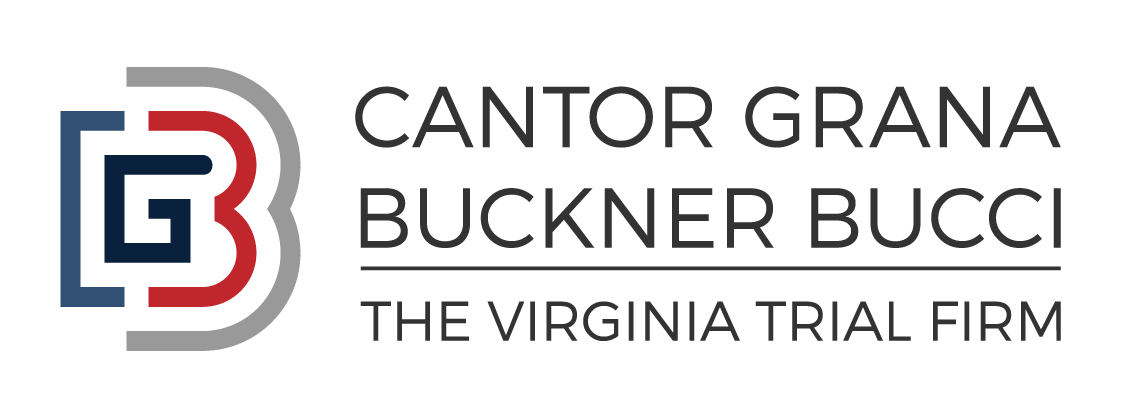What is a Wrongful Death Claim in Virginia?
Losing a loved one is a deeply painful experience, and when that loss is due to the negligence or misconduct of another party, it can feel even more devastating. In such circumstances, the state of Virginia allows certain eligible individuals to file a wrongful death lawsuit. This legal action aims to provide justice for your loved one and ensure that you receive the necessary financial support during this challenging time.
The experienced wrongful death attorneys at Cantor Grana Buckner Bucci understand the complexities and emotional turmoil surrounding these cases. Our mission is to provide compassionate legal support while aggressively pursuing justice for your lost loved one. Delve deeper into the intricacies of wrongful death lawsuits and wrongful death claims in Virginia through the following information, and don’t hesitate to reach out to our team. We’re ready and eager to assist you in navigating your path toward recovery. Contact our team today for a free consultation.
A wrongful death claim is a special kind of personal injury lawsuit made when someone is killed due to another party’s negligence or intentional act. Generally, it is mounted by the representative of the deceased person’s estate, often on behalf of surviving family members who have been directly impacted by the loss. In simple terms, it is an avenue for the deceased’s family or dependents to seek damages for their emotional and financial distress. The claim is aimed at holding the responsible party accountable for their actions and ensuring the affected family receives compensation for losses such as lost wages from the deceased, lost companionship, and funeral expenses. Keep in mind the specifics of who can file a wrongful death claim and what damages are recoverable can vary from state to state.
Who Can Recover in a Wrongful Death Claim?
Virginia Code Section 8.01-53 law identifies the eligible family members who can receive compensation through a wrongful death claim and specifies the order in which they are allowed to do so. This is a very complicated code section and who exactly will qualify as a beneficiary depends on the facts of the case. In general, the following individuals can potentially be beneficiaries who can recover in a wrongful death claim, but the specifics will vary from case to case based on the facts:
- The surviving spouse of the deceased;
- Any children or possibly grandchildren of the deceased;
- Surviving parents and siblings
- Other relatives who share the deceased’s household.
The Surviving Spouse
In Virginia, the surviving spouse is generally given priority to recover in a wrongful death claim.
Children and Grandchildren
The children of the deceased are also given priority. If the children of the deceased are also deceased themselves, then the grandchildren of the deceased may be able to recover.
Surviving Parents and Siblings
If there are no surviving spouses, children, or grandchildren, then parents and siblings of the deceased may qualify as beneficiaries, as well as other relatives who were members of the decedent’s household and relied on the decedent for support or services.
Other Statutory Beneficiaries
In some cases, there may be no surviving immediate family members, but other individuals may have a right to file a wrongful death claim. This can include relatives such as cousins, aunts, or uncles who were living with the deceased at the time of their death and were financially dependent on them. Criteria and Conditions for Filing a Wrongful Death Suit in Virginia
In order to successfully file a wrongful death suit in Virginia, certain criteria and conditions must be met. These include:
Proof of Death: The first and most obvious requirement is that someone must have died. The death certificate, an autopsy report, or other forms of documentation can provide proof of death.
Negligence or Misconduct: It must be demonstrated that the defendant’s negligence or misconduct led to the death. This could be a result of direct action, such as reckless driving, or indirect action, such as failing to provide adequate safety measures in a workplace.
Survival of Family Members: There must be surviving family members or dependents who have suffered a loss as a result of the death. These could include a spouse, children, parents, or other relatives as defined by Virginia’s Wrongful Death Act (Virginia Code § 8.01-50 et seq).
Appointment of a Personal Representative: A wrongful death suit must be brought by the personal representative of the deceased’s estate. This individual, often a family member, is appointed by the court and has the legal authority to act on behalf of the estate of the deceased.
Meeting these conditions does not guarantee a successful outcome, but it does establish the legal grounds necessary to pursue a wrongful death suit in Virginia. It is essential to consult with an experienced attorney who can guide you through this complex legal process, ensuring that all necessary criteria have been met and that you are adequately represented in court.
What Can You Recover In a Wrongful Death Case?
Damages recoverable in a wrongful death case can include:
Medical and Funeral Expenses: Any costs associated with medical care the deceased received before their death and the cost of their funeral and burial.
Loss of Income: If the beneficiaries relied on the deceased for support, they may be able to recover loss of income due to the wrongful death, as well as benefits and other financial contributions to the household.
Loss of Services: This covers the value of services the deceased would have provided, such as childcare, housekeeping, and home maintenance.
Loss of Companionship: Family members can seek damages for the emotional pain and suffering caused by the loss of their loved one.
Punitive Damages: In some cases, if the defendant’s conduct was particularly egregious, they may be ordered to pay punitive damages as a form of punishment.
Sorrow and Emotional Distress: Compensation for the mental anguish, sadness, and grief suffered by the beneficiaries as a result of their loved one’s death.
How Can a Wrongful Death Attorney in Virginia Help?
Legal Expertise and Guidance
Navigating through the intricate web of wrongful death laws can be overwhelming. Retaining a knowledgeable lawyer can drastically simplify this process. Our skilled attorneys understand the nuances of Virginia’s wrongful death statute and will guide you through each step, ensuring that your legal rights are protected. They can provide a comprehensive evaluation of your case, lay out all possible courses of action, and offer expert advice on the best way to proceed.
Negotiation and Advocacy
Insurance companies often seek to minimize the amount they pay out in wrongful death cases. Our attorneys have extensive experience negotiating with these companies and will advocate fiercely on your behalf to secure the compensation you deserve. They will construct a compelling case based on solid evidence and argue it persuasively, both in settlement negotiations and, if necessary, in court.
Administrative Assistance
The legal process requires significant administrative work, including filing court documents, collecting evidence, and keeping track of deadlines. These tasks can be time-consuming and stressful for grieving family members. Our attorneys will handle all these administrative aspects for you, allowing you to focus on your healing and recovery.
We Are Here For You
In the wake of a tragic loss, it’s critical to have dedicated, compassionate legal support. Our team of experienced wrongful death attorneys is committed to guiding you through this difficult time, fighting for your rights, and seeking the justice and compensation your loved one deserves. We understand the complexities of wrongful death suits and are prepared to stand by your side every step of the way. Contact us today to discuss your case and find out how we can assist you in navigating this challenging legal journey. We are here for you, ready to offer the support and guidance you need when you need it most.

